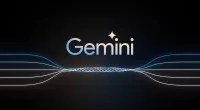The European Union (EU) has been flexing its regulatory muscles, and Apple is feeling the squeeze. The Digital Markets Act (DMA), a new law aimed at promoting competition in the tech sector, is forcing Apple to loosen its grip on its tightly controlled App Store in the EU, and now, the tech titan is making efforts to comply with the DMA.
“We’re providing more flexibility for developers who distribute apps in the European Union (EU), including introducing a new way to distribute apps directly from a developer’s website,” Apple noted in an official support page. These changes come after Apple’s initial proposals for complying with the DMA faced criticism for being too restrictive, and developers felt the terms were not conducive to a truly open ecosystem.
For those who need a refresher, the Digital Markets Act (DMA) is a new EU regulation that is aimed at fostering competition in the tech sector, specifically targeting large platforms like Apple. The DMA requires these dominant companies to loosen their grip on their ecosystems, paving the way for alternative app stores, fairer in-app payment options, and more user control over data to create a fairer market environment.
One of the most notable changes introduced by Apple is the Web Distribution feature. Slated to be launched later this spring, this feature allows developers to distribute their iOS apps directly from their own websites, completely bypassing the App Store (thus leveraging their own websites to reach users directly). This grants developers greater autonomy over the distribution process and potentially opens the door for alternative payment methods beyond Apple’s in-app purchase system, a major point of contention with developers and regulators for years. The in-app purchase system has been criticized for Apple’s hefty commission fees, which can reach up to 30%.
However, Web Distribution isn’t a free-for-all. Developers must meet specific criteria to qualify, including being a member of the Apple Developer Program for at least two years and having an app with over one million first annual installs on iOS in the EU. Additionally, apps distributed via web will still need to go through Apple’s notarization process, which ensures the app meets basic security standards, and these apps can also only be installed from a registered domain within App Store Connect.
Apple is also loosening its grip on third-party app stores within the EU. Previously, these stores were required to offer a variety of apps from various developers. Now, developers can choose to operate app stores that solely feature their own apps. For instance, a gaming company can create an app store offering only its own games. With this development, developers can distribute iOS apps in EU markets while bypassing the need for a separate app store, and this change allows developers to create a more curated experience for their users and potentially compete more effectively with the App Store itself.
Furthermore, developers now have more control over in-app promotions and discounts. Previously, Apple mandated specific templates for these elements, potentially limiting developers’ creativity and marketing strategies. Now, developers can design their own promotions and deals when directing users to complete transactions on their websites. “When directing users to complete a transaction for digital goods or services on an external webpage, developers can choose how to design promotions, discounts, and other deals. The Apple-provided design templates, which are optimized for key purchase and promotional use cases, are now optional,” Apple noted.
The Tech Portal is published by Blue Box Media Private Limited. Our investors have no influence over our reporting. Read our full Ownership and Funding Disclosure →





